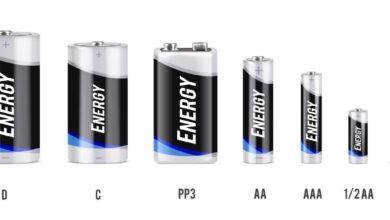The Art and Science of Sales: Understanding Sales Funnels

Sales is a core business function and essentially the main source of revenue and business growth. It is a process that comprises plans, approaches, methods, and relations that are used in an attempt to turn leads into clients. Another of the notions that define the contemporary type of selling is the sales funnel which is a model showing the customer’s process from the stage of his/her awareness of the existence of certain goods up to the stage of purchasing them.
In this paper, the role of selling and relating it to the contexts of art as well as science with a special emphasis on sales funnels will be discussed.
The Essence of Sales
It therefore can be defined as the number one function that seeks to identify clients’ needs and find ways of meeting them. It means finding customers, communicating with them and influencing them to consume a particular good or service. Thus, effective sales management is based on a need for understanding the target market and its customers, their needs, and behaviors.
Another competence is relationship management where a salesperson must be capable of securing a customer’s confidence and making the client appreciate the worth of their products.
Sales involves much more than making sales; that is, persuading consumers to buy your product and even encouraging the development of beneficial consumer relations. This includes listening to the customers, understanding their situations, and actually being willing to assist the customers in troubleshooting. Sales professionals thus have to be flexible because sales skills are dynamic and do change due to the ever-evolving business world.
About the Notion of Sales Funnel
Sales funnels are a model of the customer process and reflect the steps which a given customer may pass through from a state of being unaware of a product to making a purchase.
The funnel metaphor is used because as the name suggests the number of target audiences usually reduces at each stage till the customers. You can view this sales funnel resource to learn more. Knowledge of the idea of a sales funnel is highly desirable for a sales professional because it allows one to define possible points at which the customer will leave and adjust existing strategies to maximize conversion rates.

Sales Funnel Stages
The sales funnel is often segmented into various degrees, in which every degree corresponds to a certain stage that a certain customer goes through. While the exact terminology and number of stages can vary, a common model includes the following stages: Awareness, Interest, Consideration, Intention, Evaluation & purchase.
In the awareness stage, the potential customers get to know about a product or a service. This can be accomplished by several marketing techniques like the advertisement, social media marketing, content marketing, and PR marketing. You can learn more by clicking the link. The strategy at this stage is to communicate and attract the attention of the target consumer audience.
After the identification of the product or service by potential customers the next stage is interest. Here, they look for more information and become interested in the products of a certain brand. Sales professionals can foster awareness by delivering helpful information that would include the blog posts, videos, webinar, and others to the targeted group.
Potential consumers are typically engaged in making decisions to buy or using in the consideration stage whereby they consider several products or services. The sales professionals can ensure that they guide the target consumers to this stage by alerting them to the key distinctive features and benefits of the chosen goods or services. These can involve use of persuasive case studies, consumers’ testimonials, product samples, and elaborated information about the product.
This is the stage where the consumers indicate their plans of going out and making a purchase. This can be depicted by key performance indicators like putting products into basket, requesting for a free trial, and or requesting for a quote. Some of the ways in which sales professionals can foster intent include; promoting the use of coupons and vouchers, free samples, short time offers among others.
In the evaluation stage, the prospects decide whether to commit themselves to a particular thing or not. They might go in search of more information, check the other customers’ feedback or recommendations. This stage can be backed by a team of sales professionals to attend to any complaints arising from customers, provide assurances or warrants.
Last but not the least of the consumer buying decision stages is the post purchase stage where the actual purchase is made. But it shouldn’t end here for the students, educationists and even governments. After-sale communications, including e-mail and phone communications to check in on customers, answer questions, and to help to re-engage and bring customers back is also a very important aspect of customer relations.

Optimizing the Sales Funnel
Efficient management of the sales funnel means evaluating every stage so that some or most of them need to be improved, and introducing changes that may provide better customer experience. This can range from enhancing sales arguments, customization of website and content, and even following specific returns using data analysis.
Lead nurturing remains one of the most effective approaches that should be employed for the optimization of sales funnel. This can be done through the establishment of rapport with the potential consumers using appropriate medium. Ensuring that information being delivered is on topic and in response to the needs of a particular group, sales professionals can help the leads go through the funnel and thus are more likely to convert.
Understanding the psychology of consumer behavior is a crucial aspect of driving sales through effective sales funnels. Just as sales strategies need to be carefully crafted to guide customers toward a purchase, product selection plays an important role in influencing buying decisions. For example, timeless fashion pieces like elegant black dresses with white collars are popular choices that capture attention and lead to conversions. Ensuring your product stands out in such a competitive market is key to enhancing your sales funnel’s effectiveness.
Another critical improvement strategy in increasing the efficiency of the sales funnel is the integration of marketing and sales. Ideally, the marketing division and the sales department work hand in hand to guarantee a smooth progression of the potential consumers from one stage to the other of the funnel. This can be done in the following ways: Goal congruence, communication and the utilization of customer relationship management (CRM) leads database.
In conclusion, the analytical study of sales function is both evolving and crucial in formulating a business since it focuses on customers’ needs. The sales funnel is a tool that can be helpful to every salesperson since it displays the client’s path and allows them to refine the process.





